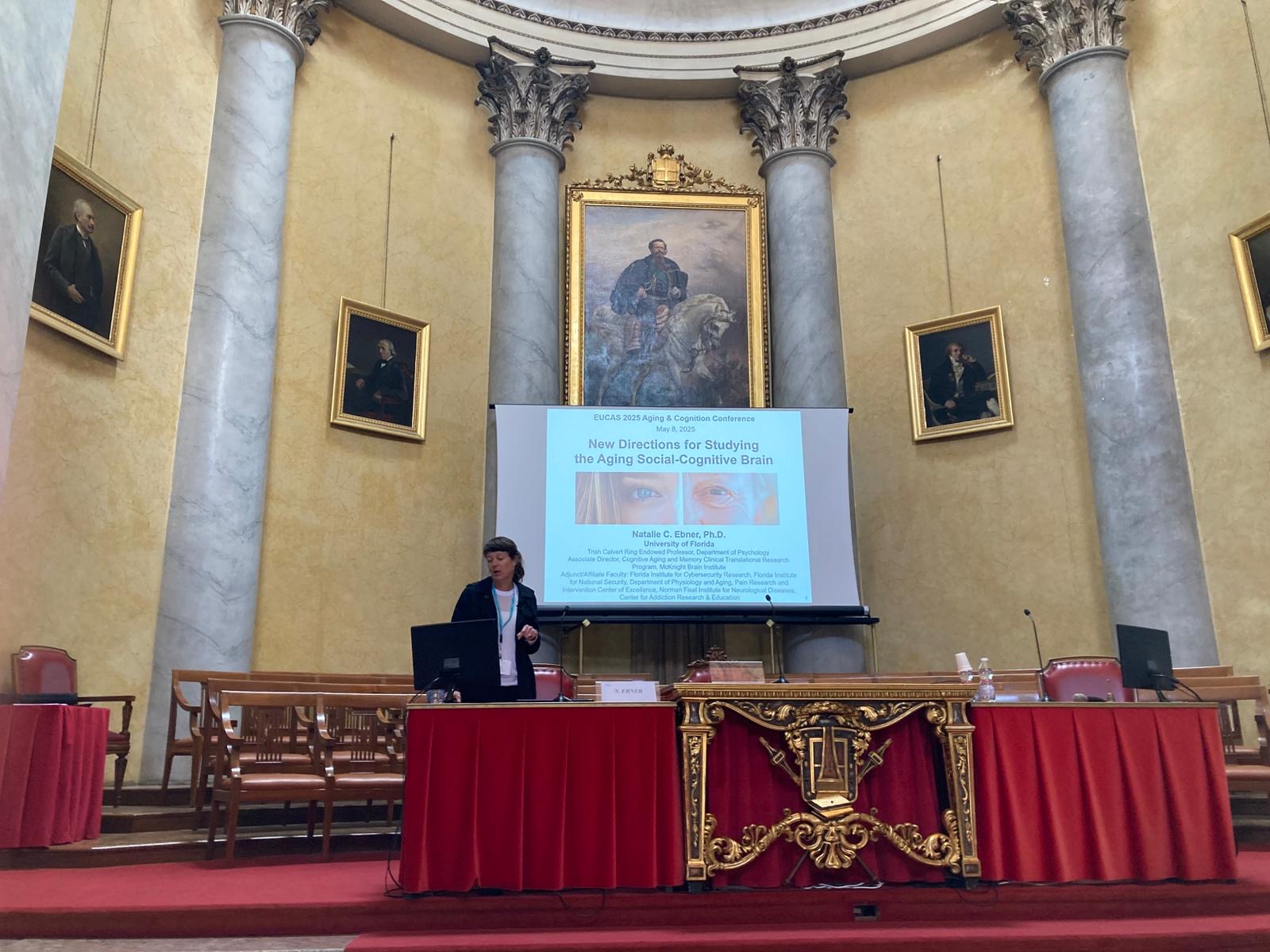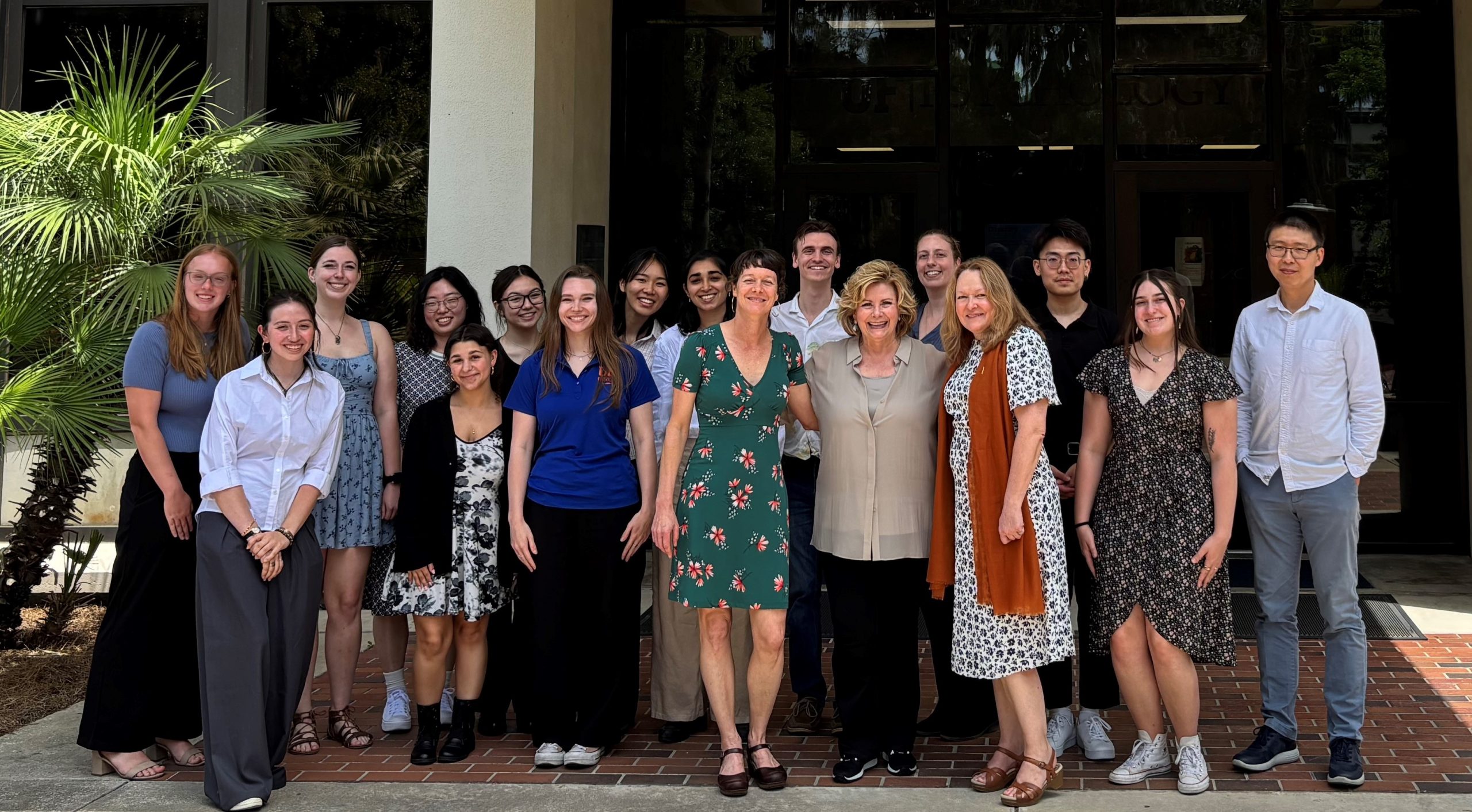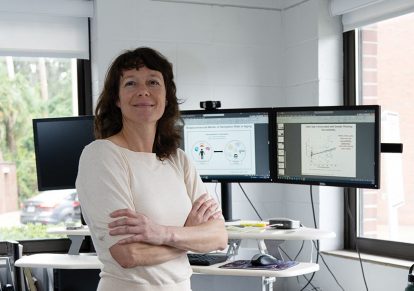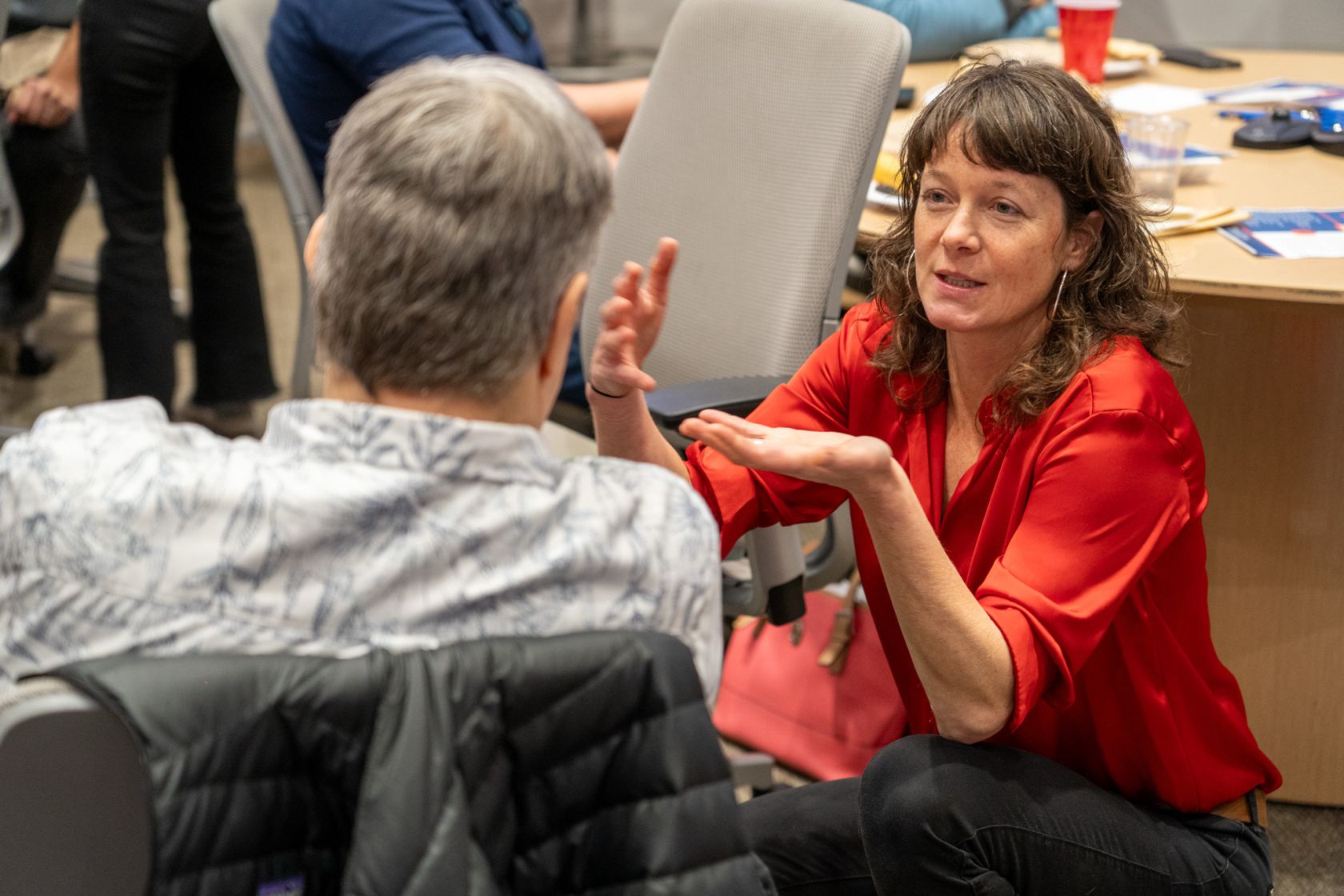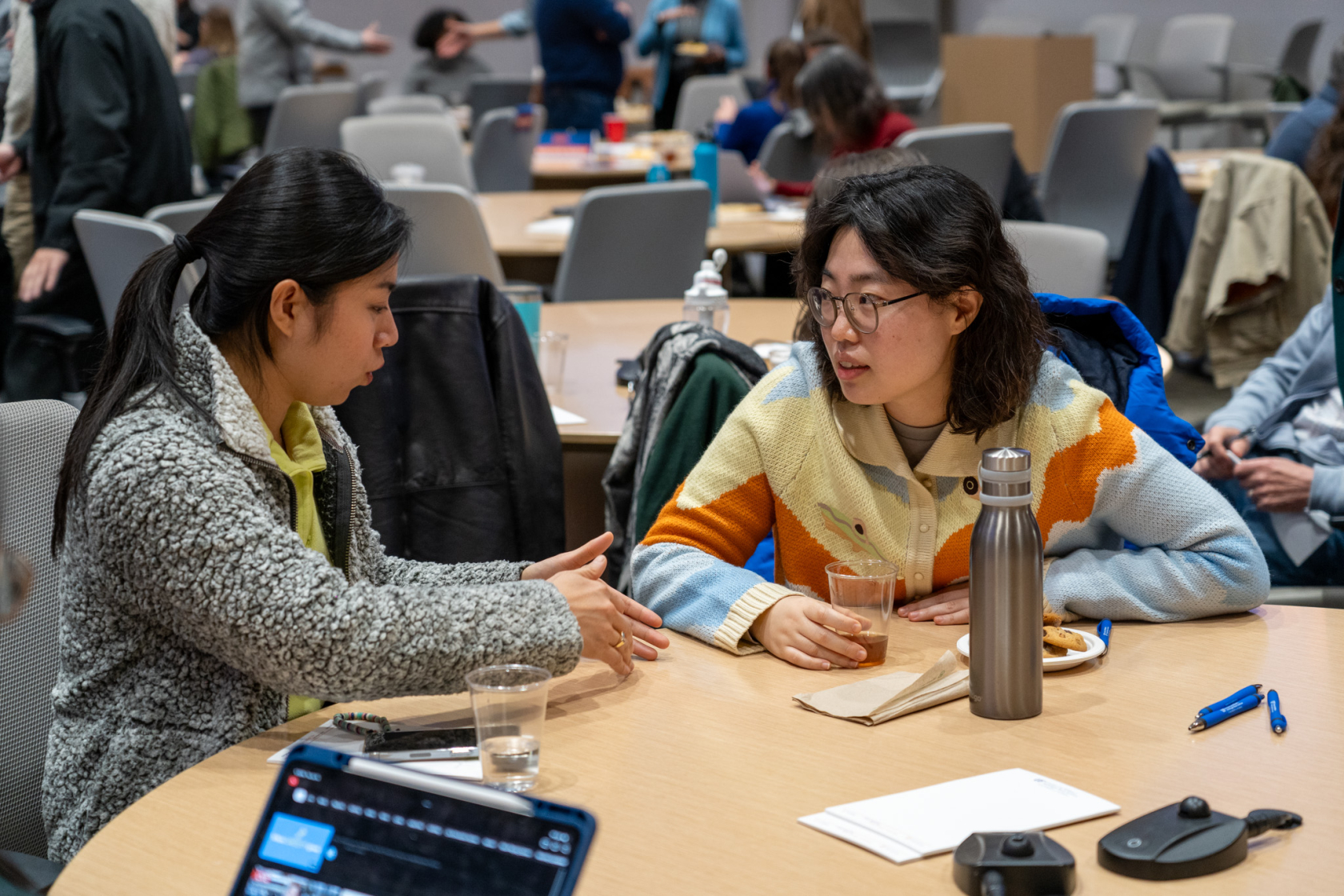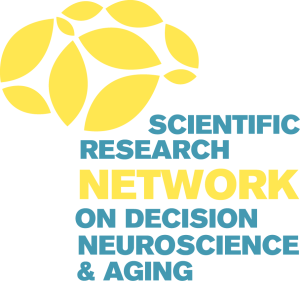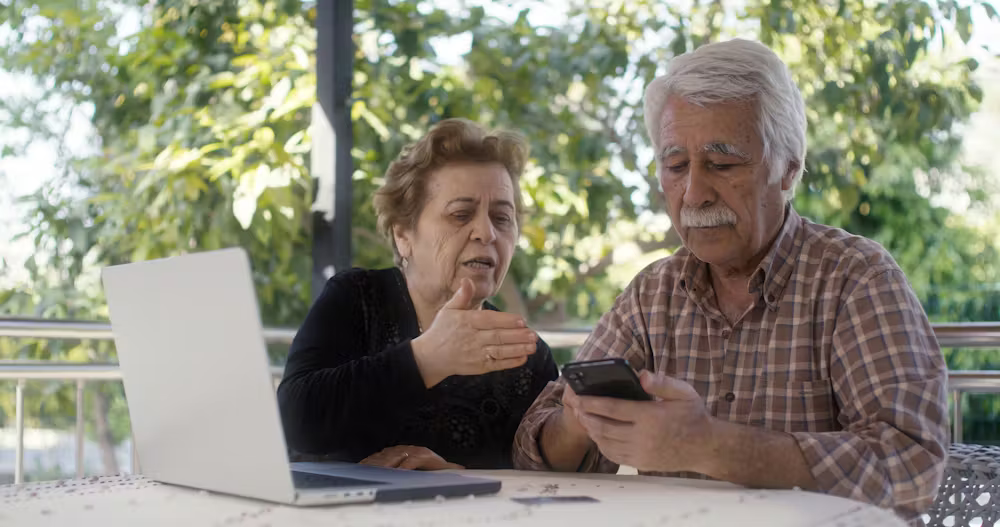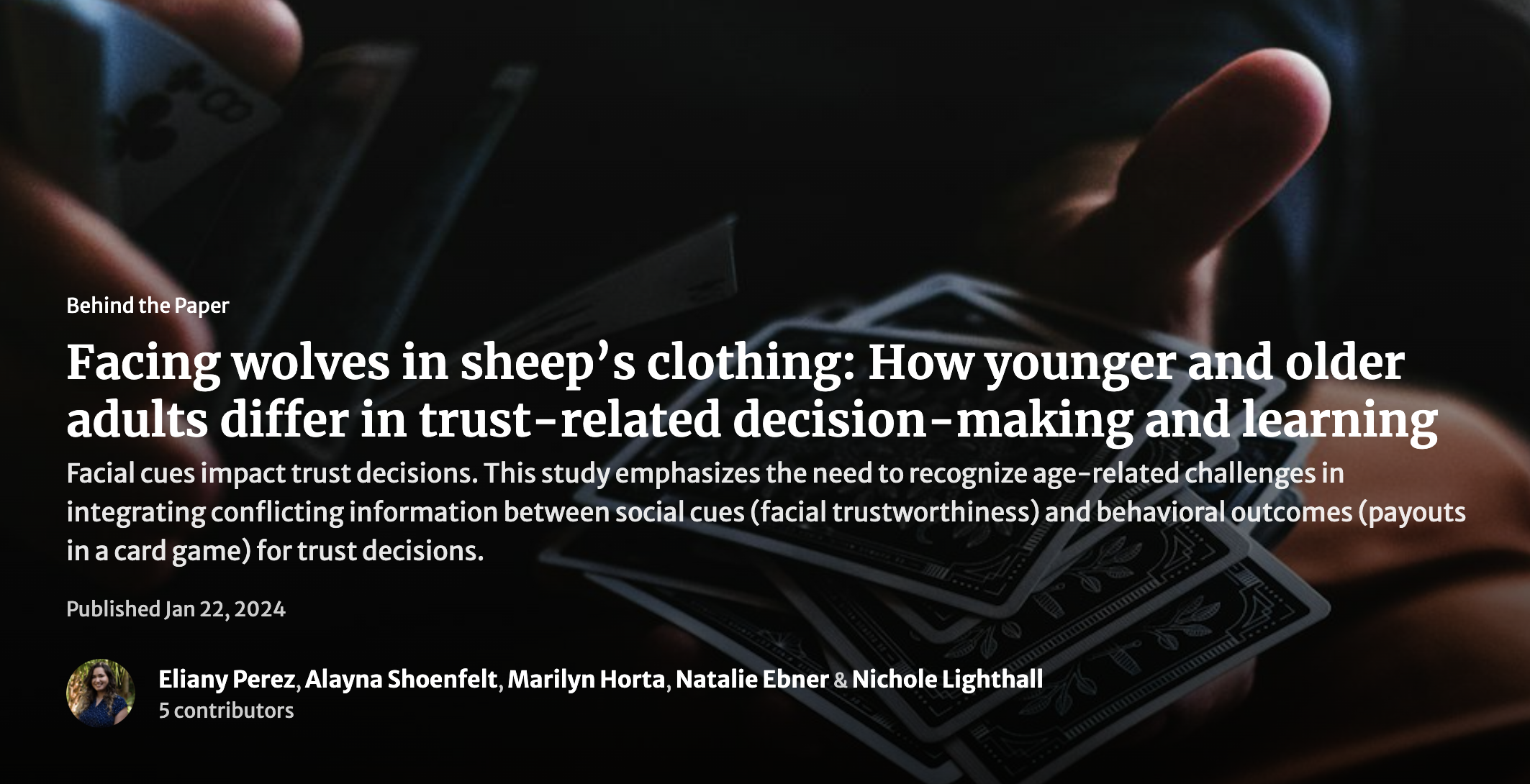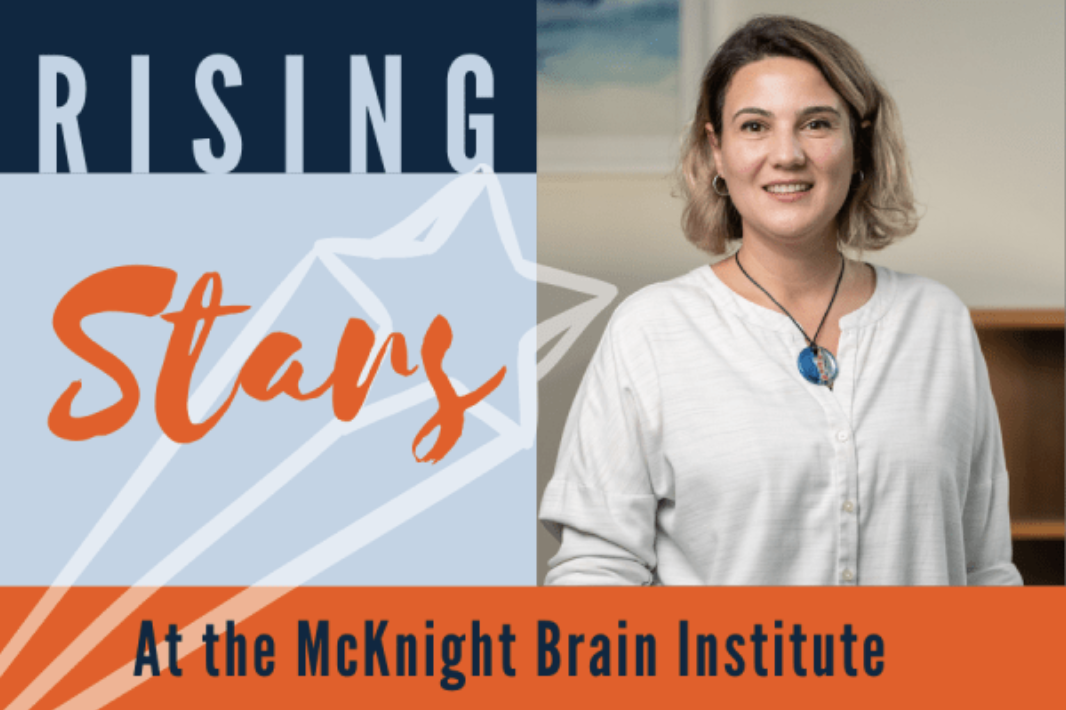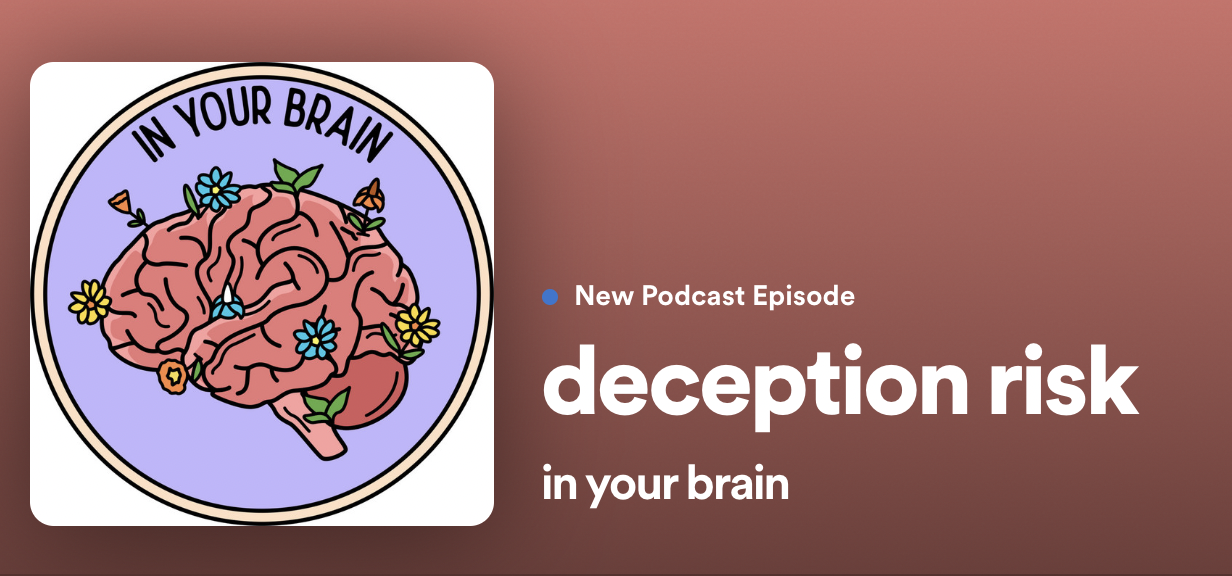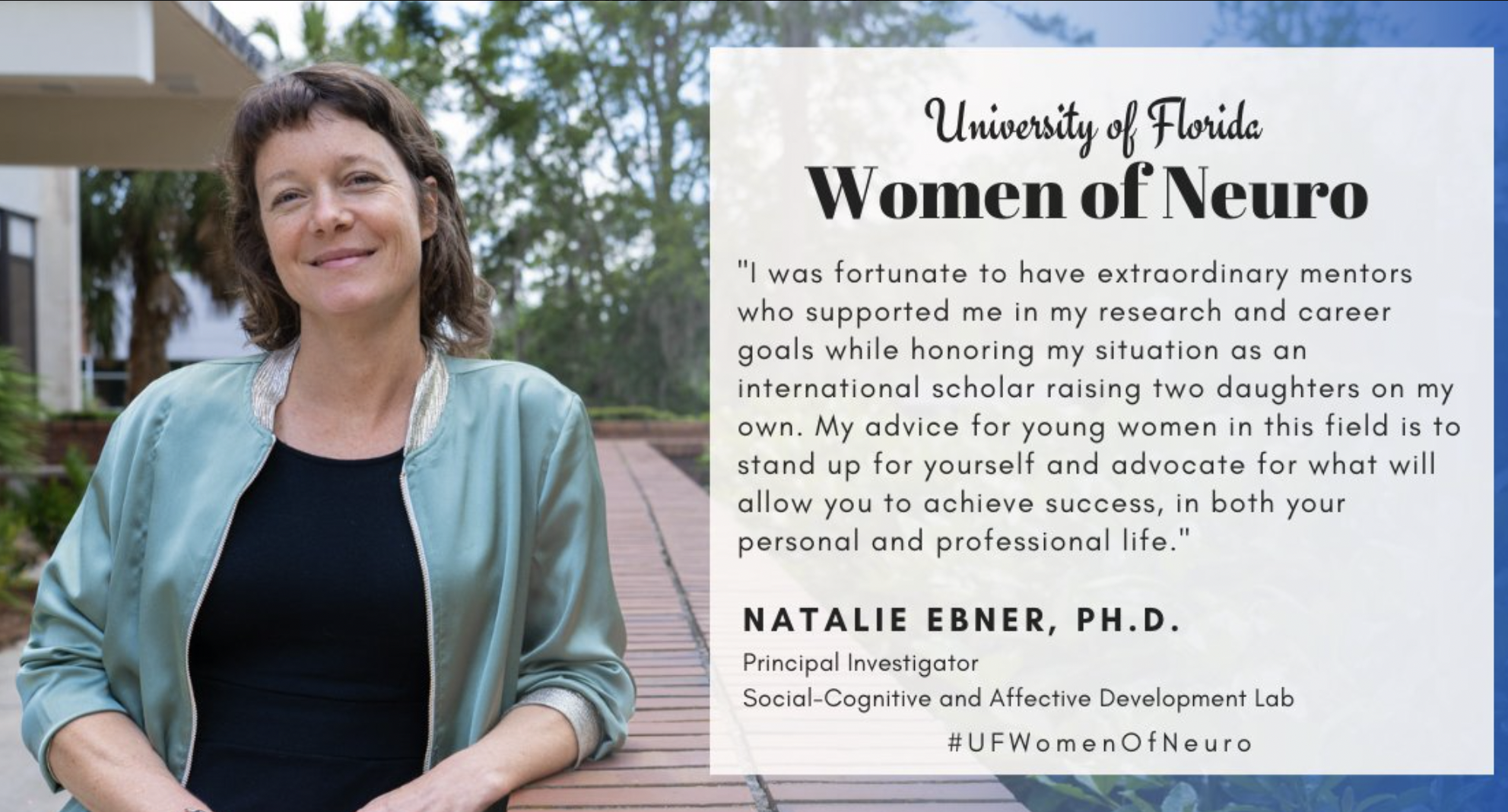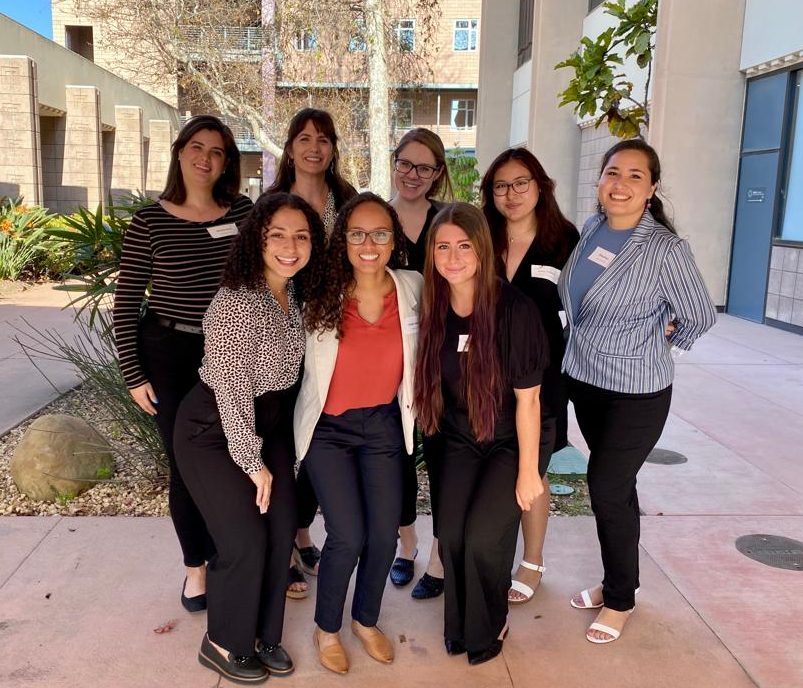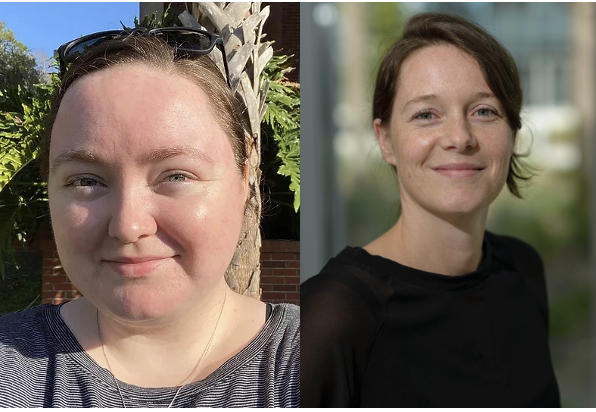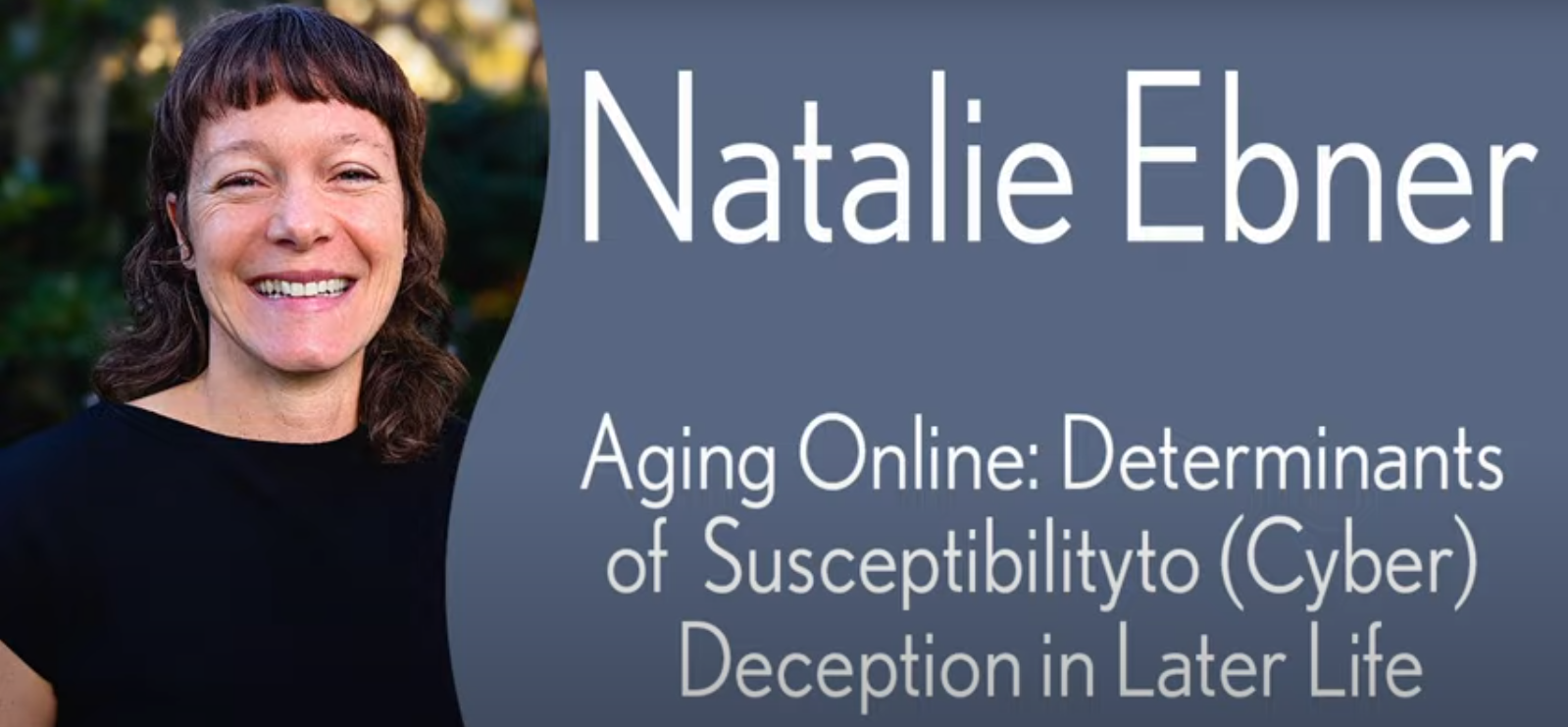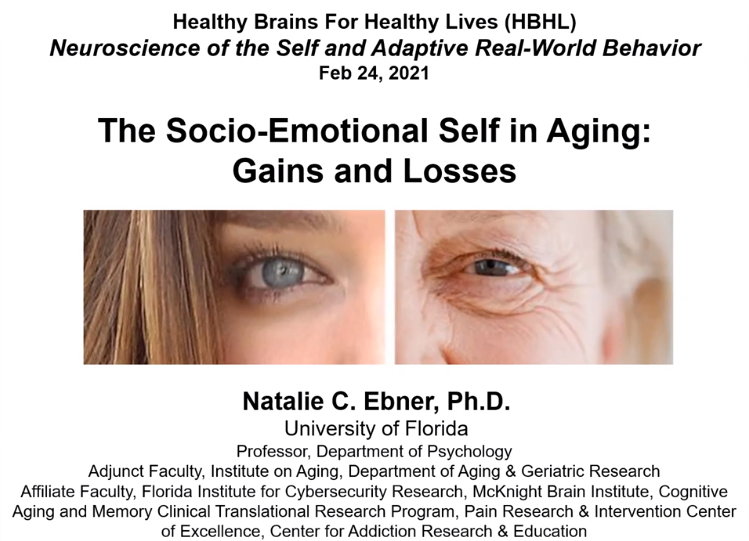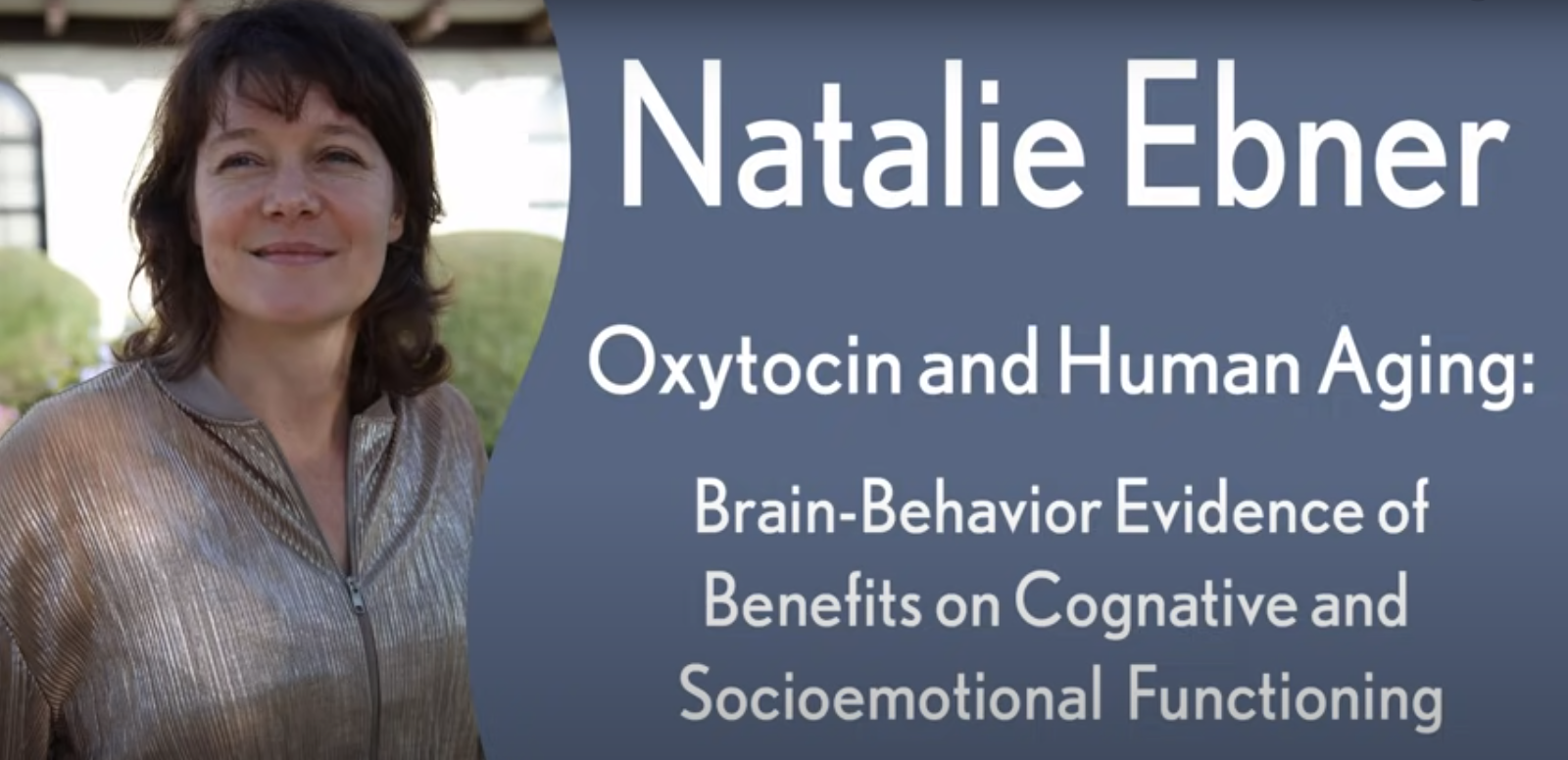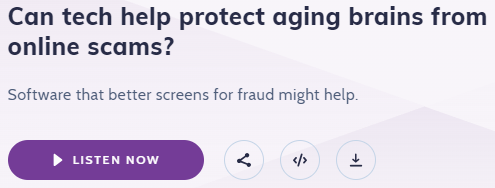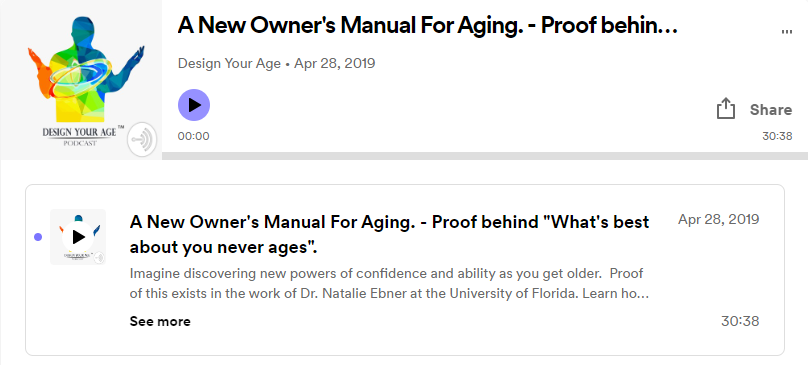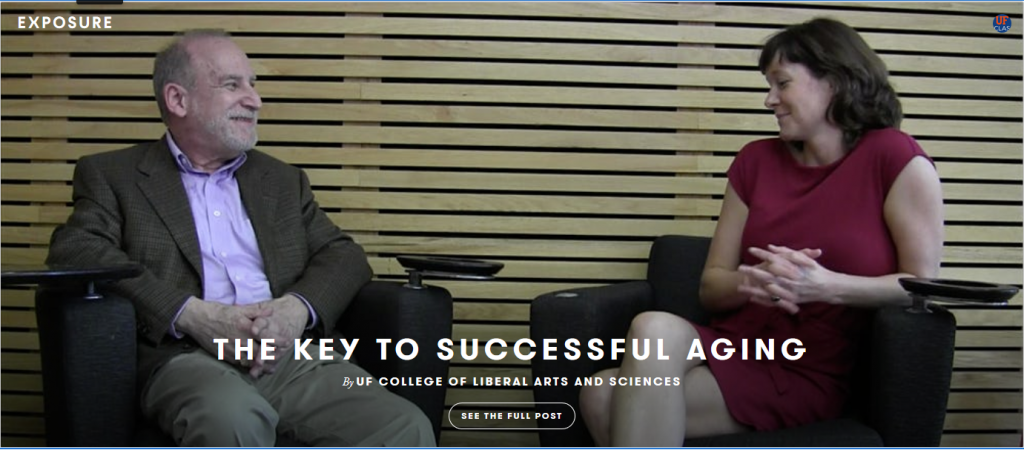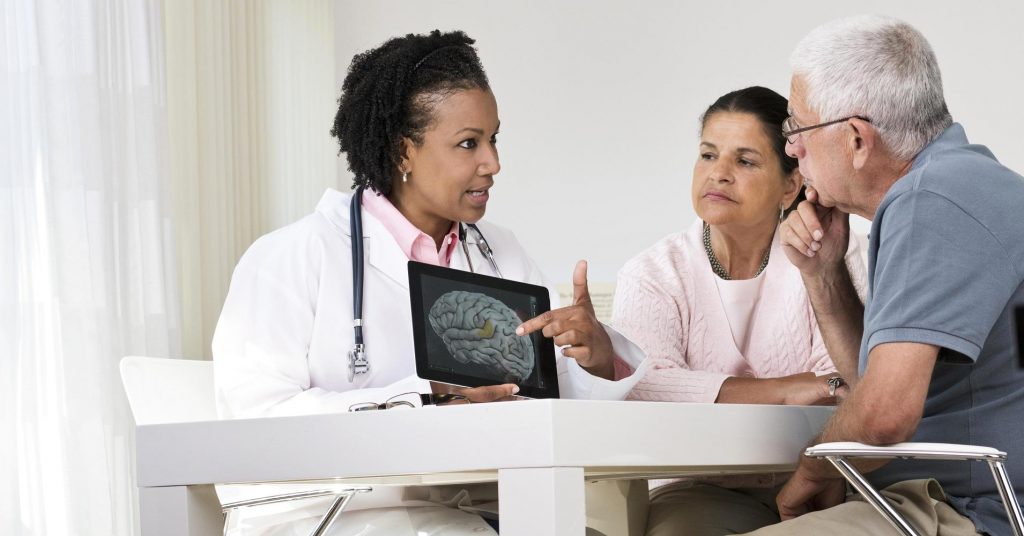May 7-10, 2025
Aging & Cognition Conference in Pavia
Dr. Natalie Ebner was a keynote speaker at the 8th International Conference Aging & Cognition in Pavia, Italy! She presented on new directions for studying the aging social-cognitive brain. |
May 5, 2025
Trish Ring Visit
We are thankful and honored that Dr. Trish Ring visited the Department of Psychology last week! We appreciate her continued support for the department and our lab’s research program! |
January 16, 2025
Ytori Magazine
Research ongoing in Ebner Lab was featured in the College of Liberal Arts and Sciences (CLAS) Ytori Magazine. In the article, Dr. Natalie Ebner discusses how real-time functional magnetic resonance imaging (rtfMRI) can be used to increase brain activity. |
January 14, 2025
MBI Insights
At the second MBI Insights event, Dr. Natalie Ebner gave a brief talk about current research being conducted at the Ebner Lab at the McKnight Brain Institute! Several lab members attended and networked with other labs that have ongoing projects. |
December 2, 2024
Awarded SRNDNA: 2025 Pilot Grant
Graduate students Alayna Shoenfelt and Kylie Wright alongside Drs. Natalie Ebner, Nichole Lighthall, and Dawn Bowers were awarded a pilot grant to conduct a novel natural dyadic deception experiment! |
September 25, 2024
Bodily awareness could curb scams and fraud against older adults
This article discusses how better interoceptive awareness was found to be linked with higher scam detection in a collaborative study. |
September 10, 2024
“Cuddle hormone” oxytocin may provide pain relief and help curb harmful opioid use
This article reviews a collaborative study examining oxytocin as a potential pain reducer and potential preventative for long-term opioid use. |
June 27, 2024
THE SAFE GUARD FORUM
Natalie attended and was the keynote speaker at the SAFEGUARD forum in San Francisco California. |
June 11, 2024
Are older adults more vulnerable to scams?
In this article, Drs. Natalie Ebner and Didem Pehlivanoglu discuss increased presence as well as factors contributing to increased vulnerability in to scams in older adults. |
May 28, 2024
Gainesville law enforcement, researchers weigh the impact of rising online scams
In this article, Dr. Natalie Ebner discusses the effect of embarrassment on inaccurate scam reporting and cognitive decline on scam vulnerability in older adults. |
February 12, 2024
Older Adults Rely More on Trust in Decision Making
In this publication, Eric Hamilton reviews work led by Dr. Marilyn Horta in the Ebner Lab regarding older adults’ tendency to rely on first impressions and how it increases susceptibility to scams. |
January 22, 2024
The ‘Why Behind the Paper’ on Trust-Related Decision-Making
In this publication, Eliany Perez, Alayna Shoenfelt, and Drs. Natalie Ebner, Marilyn Horta, Nichole Lighthall explain the details on the importance of recognizing age-related challenges in integrating conflicting information between social cues (facial trustworthiness) and behavioral outcomes (payouts in a card game) for trust decisions. |
August 22, 2023
MBI Rising Stars: Dr. Didem Pehlivanoglu
In this video, post-doctorate associate, Dr. Didem Pehlivanoglu, discusses her innovative neuroscience research on deception risk and aging. |
July 7, 2023
In Your Brain: Deception Risk Podcast
In this podcast Drs. Natalie Ebner, Marilyn Horta, and Didem Pehlivanoglu are interviewed about risk factors and susceptibilities to scams, phishing, and deception. |
May 9, 2023
Dr. Natalie Ebner #UFWomenofNeuro
Dr. Natalie Ebner was recognized as a “UF Woman of Neuro”, as she continues to advance science through her new studies using fMRI, as well as oxytocin administration. |
April 30, 2023
Poster Presentations at the SRNDNA Conference in Santa Barbara, California
Scientific Research Network on Decision Neuroscience & Aging Conference Dr. Marilyn Horta, Becca Polk, Amber Heemskerk, and Dalia El-Shafie (University of Florida) presented their posters about the neuroscience of decision-making in older adults at the (Scientific Research Network on Decision Neuroscience & Aging) SRNDNA Conference, along-slide members from our collaborating lab (University of Central Florida) supervised by Dr. Nichole Lighthall. |
February 23, 2023
SRNDNA Collaboration Award goes to Drs. Colleen Hughes and Natalie Ebner
Scientific Research Network on Decision Neuroscience & Aging Conference Drs. Colleen Hughes (Montreal Neurological Institute) and Natalie Ebner (University of Florida) will collaborate to examine how brain aging, as measured by functional network analysis during rest and task states, relates to older adults’ decision-making in actual and simulated deception contexts. |
November, 17, 2022
Talk on (Cyber)Deception in Aging — Florida Institute for Human and Machine Cognition
Florida Institute for Human and Machine Cognition Dr. Natalie Ebner gave a talk regarding (cyber)deception in Aging at the Florida Institute for Human and Machine Cognition. She reviews potential factors and considerations with susceptibility to deception in the growing aging population. |
March 1, 2022
NIA R01 Awarded to Study Mechanisms of Trust-related Learning in Aging
University of Central Florida- Adult Development and Decisions Lab News Dr. Natalie Ebner, alongside Dr. Nichole Lighthall (University of Central Florida) and Dr. Bob Wilson (University of Arizona) were awarded a a Multi-PI R01 from the NIH to begin new research on basic neurocognitive processes of trust-related learning in aging |
March 9, 2021
Newly Funded Psychology Research Looks to Improve Alzheimer’s Navigation Impairment
University of Florida Liberal Arts and Sciences News UF researchers (Dr. Ebner and Dr. Weisberg) chart a new course for our understanding of age-related navigation problems |
February 24, 2021
The Socio-Emotional Self in aging: Gains and LossesHealthy Brains for Healthy Lives (HBHL): Neuroscience of the Self and Adaptive Real-World Behavior In this recorded presentation, Dr. Natalie Ebner discusses Affective Processing in Aging. (She begins around 41:30.) |
February 15, 2020
Goldphish memories: Aging and susceptibility to fraud
Cybercrimeology Podcast In this podcast episode, Dr. Ebner discusses her research on the psychology of aging and in particular how that aging can have an impact on susceptibility to online fraud and spam. |
January 2020
Elder Fraud Research: Tracking People Vulnerable to Email Scams
Article in Senior Living Executive January/February 2020 issue Dr. Ebner discusses research in the lab regarding phishing, as well as some findings of the research and related discussions. |
December 20, 2019
Natalie Ebner – Oxytocin and human aging
IHMC Evening Lecture series In this video, Dr. Ebner discusses the brain-behavior evidence of benefits of oxytocin on cognitive and socioemotional functioning. |
November 21, 2019
Talk on Oxytocin in Human Aging — Florida Institute for Human and Machine Cognition
Florida Institute for Human and Machine Cognition Dr. Natalie Ebner gave a talk regarding the brain-behavioral evidence of benefits on cognitive and socioemotional functioning focusing on oxytocin. She discusses various ways oxytocin is thought to affect cognition in the aging population and discusses the efficacy of oxytocin treatment. |
August 27, 2019
Checking your email when you’re grouchy could make you less likely to fall for phishing scams
Article by CNBC In this article, Dr. Ebner and Dr. Oliveira’s research on interdisciplinary computer security is discussed in the context of susceptibility to cybersecurity threats. |
May 23, 2019
Phishing Research Featured in Marketplace Podcast
Can tech help protect aging brains from online scams? by MARKETPLACE TECH In this podcast Dr. Ebner is interviewed about the phishing research we have done with Dr. Daniela Oliveira. |
April 28, 2019
A New Owner’s Manual for Aging. – Proof behind “What’s best about you never ages”.
Design Your Age Podcast In this podcast, Dr. Ebner discusses how to access, adapt, and manage different skills as you get older. |
May 30, 2018
The Key to Successful Aging: Two UF Experts on aging offer advice for those entering their golden years
The Key to Successful Aging by UF College of Liberal Arts and Sciences on Exposure In this article, Dr. Ebner and a colleague share key insight on aging. |
April 30,2018
CNBC News Coverage: As you age, your brain becomes less able to detect fraud
Our Journal of Gerontology paper and research on phishing deception & susceptibility vs cognition & emotion was featured on CNBC. |
